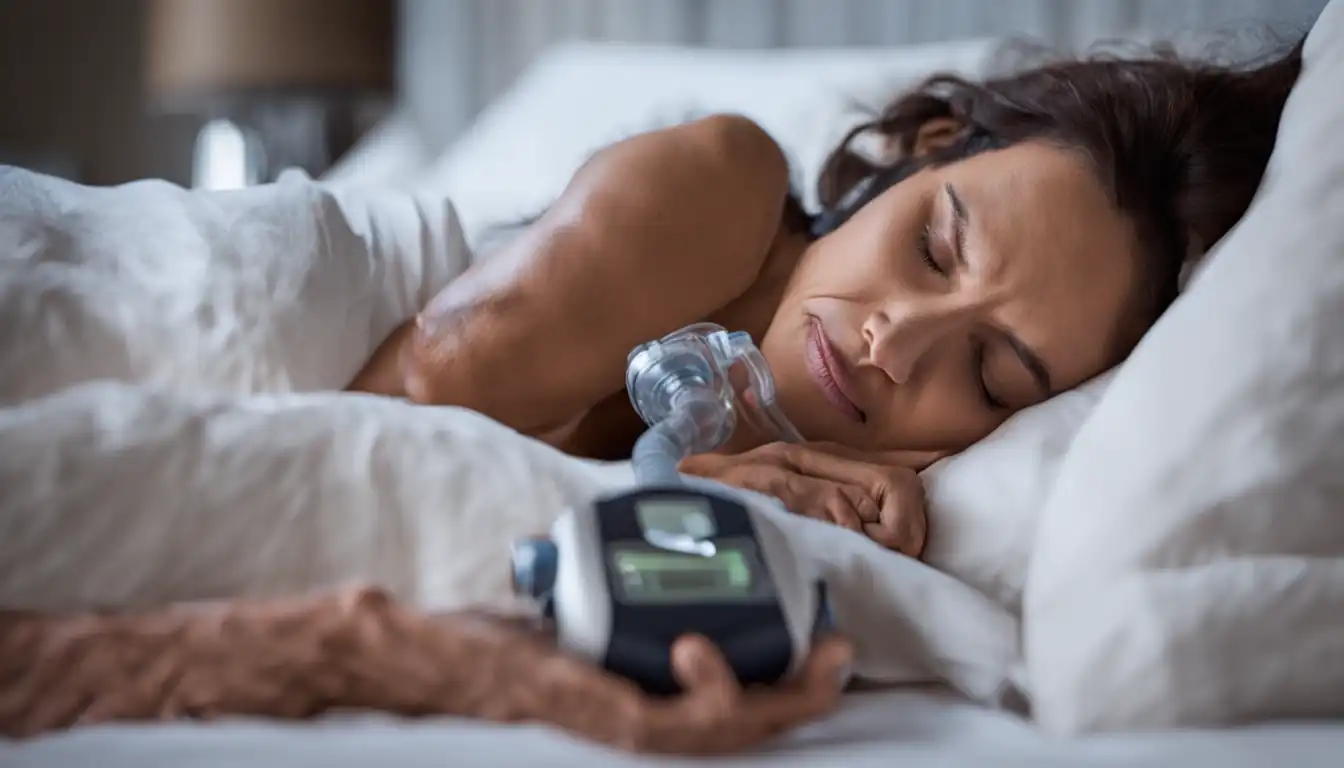Exploring the Link Between Sleep Apnea and ADHD in Women
Today we're diving into the intriguing world of sleep apnea and ADHD in women. Ever wondered if there's a connection between these two conditions? Well, buckle up because we're about to explore this fascinating link and uncover some valuable insights that could make a real difference in your life.
Understanding Sleep Apnea

What is Sleep Apnea?
Sleep apnea is a sleep disorder characterized by pauses in breathing or shallow breathing during sleep. These pauses can last from a few seconds to minutes and can occur multiple times throughout the night. There are three main types of sleep apnea: obstructive sleep apnea, central sleep apnea, and complex sleep apnea syndrome.
How Common is Sleep Apnea in Women?
Sleep apnea is often thought of as a condition that primarily affects men, but it is also prevalent in women. In fact, research suggests that around 24% of women have some form of sleep-disordered breathing, with obstructive sleep apnea being the most common type. However, due to underdiagnosis and misdiagnosis, many women may not be aware that they have sleep apnea.
ADHD in the Spotlight
ADHD, or Attention Deficit Hyperactivity Disorder, is a neurodevelopmental disorder characterized by symptoms such as inattention, hyperactivity, and impulsivity. While commonly associated with children, it is important to recognize that ADHD can persist into adulthood. In fact, studies have shown that women are often underdiagnosed or misdiagnosed with ADHD due to differences in symptom presentation compared to men.
Defining ADHD and Its Symptoms
- Inattention: Women with ADHD may struggle with maintaining focus on tasks, organizing activities, and completing tasks.
- Hyperactivity: While hyperactivity is often more noticeable in boys with ADHD, women may exhibit restlessness or fidgeting behaviors.
- Impulsivity: Impulsive behaviors such as interrupting others or acting without thinking are common symptoms of ADHD in women.
The Prevalence of ADHD Among Women
Research has shown that the prevalence of ADHD among women is not as low as previously believed. In fact, studies suggest that up to 4.4% of adult women may have ADHD. However, due to underrecognition and misdiagnosis, many women with ADHD may go undiagnosed and untreated.
By exploring the link between sleep apnea and ADHD in women, we can gain a better understanding of how these two conditions may interact and impact each other.
The Connection Between Sleep Disorders and ADHD
ADHD, or Attention Deficit Hyperactivity Disorder, is a neurodevelopmental disorder that affects individuals' ability to focus, control impulses, and regulate behavior. Research has shown a strong connection between sleep disorders and ADHD in women.
How Sleep Impacts ADHD Symptoms
Sleep plays a crucial role in the management of ADHD symptoms. Lack of quality sleep can exacerbate symptoms such as inattention, hyperactivity, and impulsivity. Women with ADHD often struggle with sleep-related issues, including insomnia, restless leg syndrome, and sleep apnea.
Research Findings on Sleep Apnea and ADHD
Recent studies have highlighted the link between sleep apnea and ADHD in women. Sleep apnea is a common sleep disorder characterized by pauses in breathing during sleep. Research suggests that women with untreated sleep apnea are more likely to experience symptoms of ADHD, such as difficulty concentrating and irritability.
"The relationship between sleep disorders like sleep apnea and ADHD in women is complex but significant. Addressing sleep issues can lead to improvements in ADHD symptoms."
Diagnosing the Dual Challenge
When it comes to women with ADHD, it is crucial to consider the potential link between sleep apnea and ADHD. Diagnosing both conditions accurately is essential for effective treatment and management.
Steps to Diagnosing Sleep Apnea
Sleep apnea is a common but often undiagnosed condition that can significantly impact overall health, including cognitive function. For women with ADHD, the presence of sleep apnea can exacerbate symptoms and make managing both conditions more challenging. Here are some steps to diagnosing sleep apnea in women:
- Symptom Assessment: Pay attention to common symptoms of sleep apnea such as loud snoring, daytime fatigue, morning headaches, and irritability.
- Consultation with a Healthcare Provider: If you suspect sleep apnea, consult with a healthcare provider who may recommend a sleep study to confirm the diagnosis.
- Treatment Options: Treatment options for sleep apnea may include lifestyle changes, CPAP therapy, or surgery depending on the severity of the condition.
Recognizing ADHD in Adults
ADHD in adults can present differently than in children, making it challenging to recognize. Women with ADHD may experience difficulties in focusing, organizing tasks, and managing time effectively. Here are some key points to consider when recognizing ADHD in adults:
- Symptom Evaluation: Look for symptoms such as forgetfulness, impulsivity, restlessness, and difficulty completing tasks.
- Psychological Assessment: A psychological assessment by a qualified professional can help determine if ADHD is present.
- Treatment Strategies: Treatment for ADHD may involve medication, therapy, and lifestyle modifications to improve symptoms and quality of life.
By understanding the relationship between sleep apnea and ADHD in women, healthcare providers can offer more comprehensive care tailored to individual needs. Proper diagnosis and treatment are essential for managing these dual challenges effectively.
Managing Both Conditions Holistically

Living with both sleep apnea and ADHD can be challenging, but there are holistic approaches that can help manage both conditions effectively. By incorporating lifestyle adjustments and seeking professional therapies, women with ADHD can improve their quality of life and overall well-being.
Lifestyle Adjustments for Better Sleep and Focus
- Establish a Consistent Sleep Schedule: Going to bed and waking up at the same time every day can help regulate your body's internal clock and improve sleep quality.
- Create a Relaxing Bedtime Routine: Engage in calming activities before bed, such as reading or taking a warm bath, to signal to your body that it's time to wind down.
- Limit Screen Time Before Bed: The blue light emitted from screens can disrupt your sleep patterns, so try to avoid electronic devices at least an hour before bedtime.
- Exercise Regularly: Physical activity can help improve both sleep quality and focus, so aim for at least 30 minutes of exercise most days of the week.
- Maintain a Healthy Diet: Eating a balanced diet rich in fruits, vegetables, whole grains, and lean proteins can support better sleep and cognitive function.
Professional Therapies That Make a Difference
- Continuous Positive Airway Pressure (CPAP) Therapy: For women with sleep apnea, using a CPAP machine while sleeping can help keep airways open and improve breathing patterns.
- Cognitive Behavioral Therapy (CBT): CBT is a type of therapy that can help individuals with ADHD develop coping strategies for managing symptoms and improving focus.
- Medication Management: Some women may benefit from medication to treat either sleep apnea or ADHD symptoms. It's important to work closely with healthcare providers to find the right medication regimen.
Incorporating these lifestyle adjustments and seeking out professional therapies can significantly impact the management of both sleep apnea and ADHD in women. Remember that individualized treatment plans may vary, so it's essential to work with healthcare providers to find the best approach for your specific needs.
Empowering Women to Overcome These Challenges
Living with both sleep apnea and ADHD can be challenging for women, but it is important to remember that there are strategies and resources available to help manage these conditions effectively.
Strategies for Daily Management
- Establish a Consistent Sleep Routine: Maintaining a regular sleep schedule can help improve the quality of sleep and reduce symptoms of both sleep apnea and ADHD.
- Create a Relaxing Bedtime Routine: Engaging in calming activities before bed, such as reading or meditating, can help promote better sleep.
- Limit Screen Time Before Bed: Blue light from screens can disrupt sleep patterns, so it is advisable to avoid electronic devices before bedtime.
- Practice Good Sleep Hygiene: Ensure your bedroom is conducive to good sleep by keeping it dark, quiet, and at a comfortable temperature.
- Stay Active During the Day: Regular exercise has been shown to improve both sleep quality and ADHD symptoms.
- Seek Support from Loved Ones: Building a strong support network can provide emotional support and practical assistance in managing these conditions.
When to Seek Professional Help
If you are struggling to manage the symptoms of sleep apnea and ADHD on your own, it may be time to seek professional help. Consider reaching out to healthcare providers such as doctors, therapists, or sleep specialists who can offer personalized treatment plans tailored to your specific needs. Remember that you do not have to face these challenges alone – seeking help is a sign of strength and self-care.
Conclusion
So, there you have it, ladies! The relationship between sleep apnea and ADHD in women is definitely worth paying attention to. By understanding how these conditions intersect and affect each other, you can take proactive steps to manage them effectively. Remember, knowledge is power, so arm yourself with information and empower yourself to overcome these challenges with confidence.





